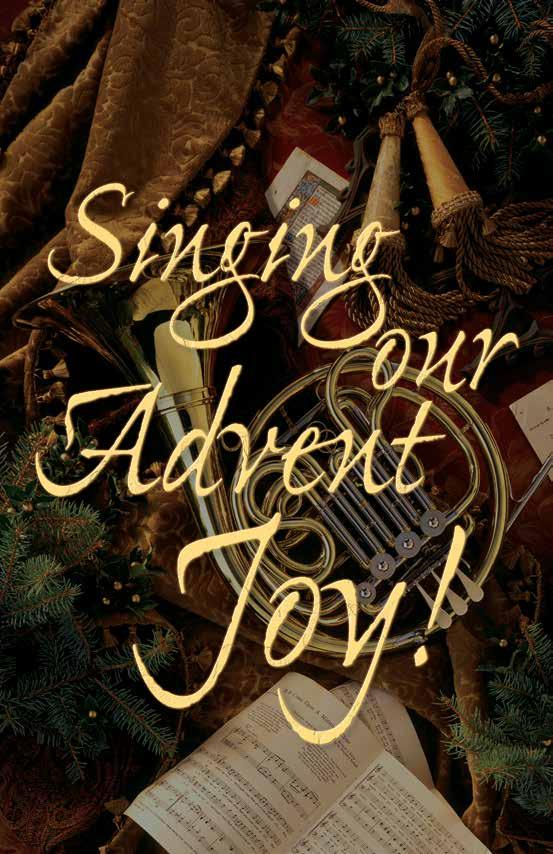
1 minute read
“O Come, O Come, Emmanuel” (O Root of Jesse) stanza 4
Around this time of year, the perpetual question of American Christmas seeps into our small talk and dinner table chit-chat. “What do you want for Christmas?” we inquire of children and coworkers, spouses and friends. Whether we ask out of curiosity or to round-out our shopping lists, the usual answers include electronics, gadgets, toys, and clothing. Yet, none of these answers are fully honest, and none captures the deepest longings that lurk beneath the surface of our holiday well-wishes.
Just as our culture glosses the Advent season with images of snow-covered landscapes, warm fires, and joyous Christmas celebrations, so also our requests for neatly wrapped gifts and gadgets beneath the tree fall short of articulating the truth of our world and our longings.
Advertisement
This is the season when we attempt to cover over the bleak realities of our world in garland and lights, and yet—despite our best decorating—we know that all of life is plagued by the tyranny of Evil and Death. Some days we might succeed in suppressing our fears of looming death—until we turn on the television, browse Facebook, or read the headlines—and we’re confronted again.
Yet, here, in this fourth verse of O Come, O Come Emmanuel the true business of Advent and our deep yearnings (our wish list!) are laid bare. Here we are reminded that the One who is “God with us” does not enter into the beautiful, peaceful, and serene world that we portray in our Christmas cards. No, Emmanuel enters a world—our world—distorted by Evil, gripped by the ravages of chaos, under the tyrannical rule of Death, and ruled by the finality of the grave. This verse isn’t just a historical reminder of a time when people called out for a Messiah to appear; rather, whenever we sing this hymn it is a prayer and cry for God to enter our world now. We cry out, even now, for victory o’er the grave, which is the perpetual longing of all humanity. This is the gift that we truly desire—the one not found on our usual Christmas lists; it is the gift that the coming of the Christ-child harkens and guarantees.
– Dr. Andrew Zirschky, Director, MAYM Nashville Extension & Research Professor in Youth Ministry


